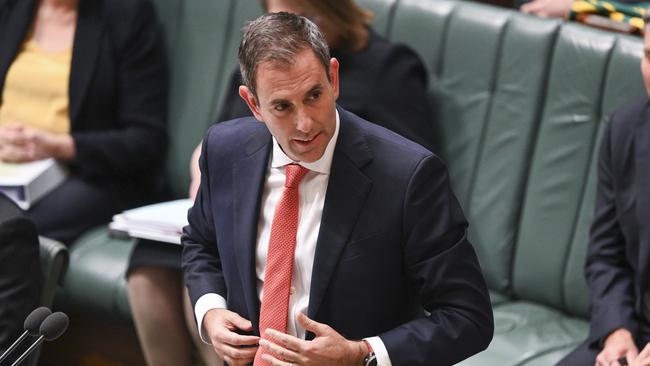Jim Chalmers again denies Senate request for access to PwC documents
The government has refused another demand from the Senate for documents around a 2018 investigation into PwC that was subsequently dropped.

The government has again denied access to documents detailing the communications between the Australian Federal Police and Australian Taxation Office that resulted in the two dropping an earlier probe into PwC Australia.
In a letter sent to the Senate, Jim Chalmers rejected a second call for the production of documents into the PwC tax scandal, saying they would prejudice an ongoing investigation into the firm.
In June, the Treasurer first moved to knock back a motion from Greens senator Barbara Pocock to force documents into the matter to be revealed.
On Monday the government failed to respond to a second motion calling for documents, as well as an explanation from the government into why Dr Chalmers had made a public interest immunity claim and why it applied to the documents.
PwC is facing multiple reviews and investigations after it was revealed the firm monetised confidential government tax briefings showing plans to reform the tax system.
Appearing earlier on Monday in the Senate, Labor senator Katy Gallagher said there was “more work to be done” in getting to grips with the use of consultants by the government.

This comes after ABC’s Four Corners program broadcast allegations concerning audit and consulting giant KPMG, detailing claims that the firm misused its relationship with the Defence Department and bilked the department by charging for work not done.
However, KPMG denies these allegations, claiming “they are not new”.
“Defence investigated allegations made to them in 2016. KPMG conducted investigations in 2019 in response to a former contractor’s allegations. Evidence that Defence was being over-billed was not substantiated in either case,” a spokeswoman said.
This comes after Dr Chalmers announced eight reviews into the consulting sector, the public service, and PwC on Sunday, with a large increase in penalties for firms caught aggressively promoting schemes to minimise tax.
A key review by Treasury will examine creating a regulator for major accounting and consulting firms “to consider whether reforms are needed”.
The Department of Finance will also review confidentiality arrangements across all government agencies to ensure they are legally binding and enforceable.
Labor senator Deborah O’Neill said the reforms were a “very decisive and comprehensive response” to scandals in the industry, but said an effort was needed to “make sure that the tax system has integrity because clearly it’s been breached by previous practices of PwC” to avoid tax, adding that she expected KPMG, EY, Deloitte were also on the list.
But Liberal senator Andrew Bragg has said that any increases to penalties will be useless without a regulator willing to enforce them.
Writing in The Australian, Senator Bragg said the government’s recent actions around the corporate regulator “suggests the PwC laws could be hollow at best”.

Senator Bragg has repeatedly clashed with the government as he seeks to hold an inquiry into the Australian Securities & Investments Commission, which regulates corporate Australia.
“For almost nine months, the Senate has been trying to investigate why the corporate cop ASIC regularly fails to enforce Australia’s corporate laws,” Senator Bragg said.
“ASIC is attempting to block the Senate’s access to case files which will show how ASIC goes about investigating and prosecuting. Or, more correctly, not prosecuting.”
Senator Bragg said “the next PwC scandal” would be created as a result of the government’s moves.
“The PwC breaches are complex as they sit across multiple frameworks but one thing is clear: the PwC staff felt they could get away with it,” he said.
“Frankly, I was not surprised about the PwC matter. It emerged months after we had established the ASIC inquiry and the anaemic enforcement efforts were obvious.”
Senator Bragg said PwC used confidential information because the firm’s partners “felt they could use the government’s private information and monetise it”.
“To be clear, it has not been Labor’s fault that ASIC has historically been poor at law enforcement, but it is becoming their problem,” he said.
“Their new announcement to enact PwC laws makes regulatory anaemia a bigger political problem for Labor because expectations of fewer scandals will increase.”







To join the conversation, please log in. Don't have an account? Register
Join the conversation, you are commenting as Logout